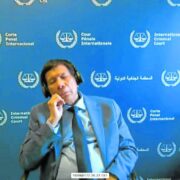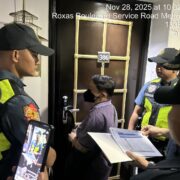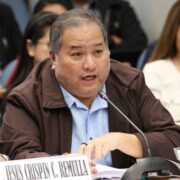The world has teeth and so do you
My visits to a dental clinic could be counted with my 10 fingers. This means that, at 27, my teeth are still as bad as our country’s economy. The neglect had much to do with being brought up in a family that doesn’t believe in routine checkups—health, dental, or mental—unless it was too late that something must be plucked from our brains or bodies. Not that we had much money for routine procedures anyway. What we had, at least while my sister and I were growing up, was just enough for us to live outside of jails or asylums.
When at last I fled the nest, I brought along this unfortunate belief that doctors are not essential unless I’m on my deathbed. What I earned by then was gobbled up by bills and utilities. Rent, food, laundry, and internet were the horsemen that took the first four places on my list of things to pay for. Not one of the other items on the list had anything to do with talking to someone about blood tests or root canals. I grew up thinking that these aren’t necessary. So I never bothered to call any doctor’s office about any aches, which I managed anyway with pills—and prayers to God or Beyoncé.That was until October when an ache refused to disappear despite my silent cries and fervent prayers. It started at a small spot within my jaw, later fanning out to the bottom-right quadrant of my skull. The pain was atrocious. It felt like giving birth to a fistful of nails, through my mouth. It was so intense that I suddenly began asking conflated and ugly questions about existence, with the answers being just as hideous. It took me some time before I discovered that this mad rush of pretentiousness was triggered by an impacted wisdom tooth.
My work by then was hectic. I was sitting in front of my computer for more than 10 hours a day, and I barely had time to eat. Much less tend to the pain. But it kept getting worse, until the time came that I couldn’t even think or type without crying aloud, and I just lay on my bed because I had not the strength to do anything else.I had no choice then. I at last booked an appointment at a nearby dental office, at a time when my work was a little less cramped. After having an x-ray, the dentist told me that I turned out to have four molars that must be removed. When I asked when should this be done, she said: “Soon. Or else your other teeth will be damaged.”
And so, after 27 years of living almost free from dental appointments, I had to schedule myself an oral surgery.
It took place in mid-November.
To say that I was afraid was an understatement. It didn’t help that my gums had to be stabbed with anesthetics many times over, or that the doctor tugged at my teeth with a pair of pliers. As I lay there, under the beaming dentist’s light—with the dentist and her assistant fussing over my crooked teeth—I suddenly thought how this moment was slowly becoming a horrendous reminder of my mortality.
It took the dentist close to five hours to remove three of the wisdom teeth, with the last one having to stay given the risk of anesthesia poisoning if we decided to push through with it. Clutching my plastic bag of medications, I emerged from the dental office in an odd mix of numbness and exhaustion. It also didn’t take long for the effects of the numbing agent to wear away, and at length I found myself walking to a nearby Uncle John’s looking for a tub of ice cream, moaning with pain from the tender sockets in my mouth.
It took a full week for the pain to subside, a month for my discomfort to completely disappear. By December, my stitches had been removed, my gums no longer tender. At that time, I’d catch myself looking at my teeth in the mirror. Then I’d imagine myself with a perfect smile, with straight white teeth. I’d also imagine not having to go through the surgery. Such thoughts would progress until I began to wonder how it was to live without pain, uncertainty, or suffering.
It made me think of the way that I was raised. It suddenly made sense to me why, as a kid, we didn’t have many visits to doctors. It was a way of shielding ourselves from the certainty of pain. Besides the lack of money, it now appears to me—recalling past conversations with one of my parents—that doctor visits only led to more visits. And for what? To be told that things have to be maintained or else something might happen? I think what we thought back then was that we know that anyway, and we need no one else to tell us that.
But how blissful would it be to not have growing pains? To sail through the years without inconveniences?Days after my surgery, I caught myself in the mirror, trying to open my mouth for a spoonful of yogurt. I resembled someone who got beaten up, swollen. Opening my mouth felt like splitting my head into halves. However, after smearing a bit of the sweet cool thing just within my lips, I suddenly began to think that it might be worth it.Before and after all this pain, or perhaps even during all this, it might be worth it. At least I now believe: we could make it worth it.
—————-George Deoso, 27, is the author of “The Horseman’s Revolt and Other Horrors” (UST Publishing House, 2020), a book of dark short fiction.















